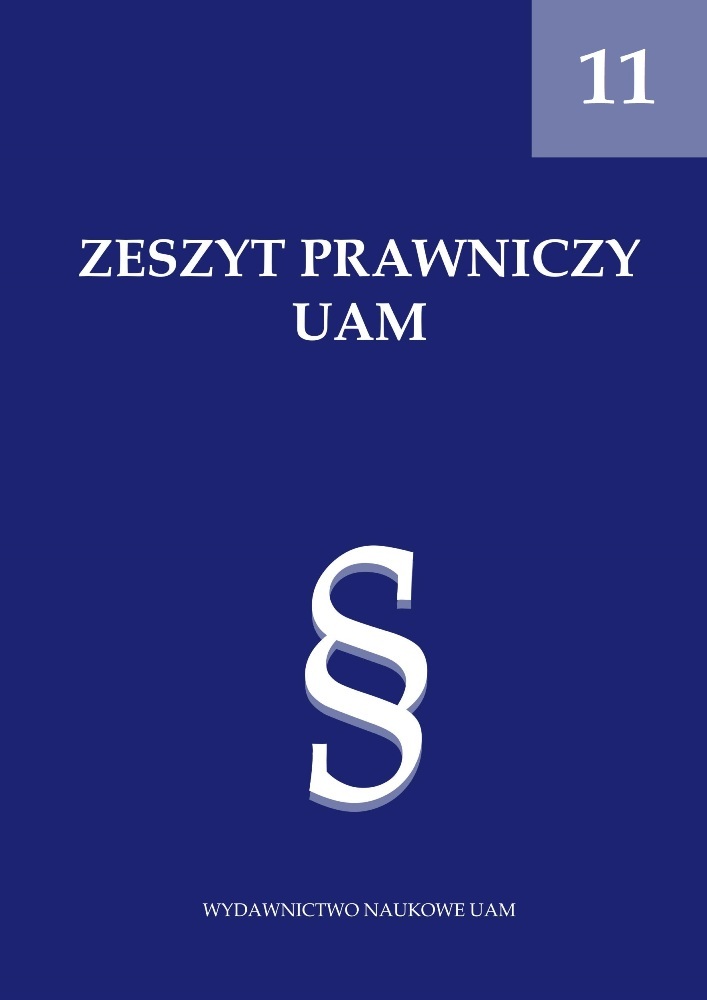Abstract
The article aims to point out the incessantly changing circumstances caused by the global pandemic. The new reality requires adaptation as well as changes in the habits of the society. The pandemic also impacts legal systems, particularly the criminal law. Due to this fact, fundamental questions arise, in particular, how legislation might secure the overstretched health service against presumptive criminal liability. The paper discusses the most debatable aspects that healthcare professionals might face, notably the refusal of health benefit when the doctor is not provided with personal protective equipment or conflict of the interest during medical treatment. Furthermore, the article presents the newly implemented institution – the good Samaritan clause, which exempts from criminal liability health professionals defined in the act, under special circumstances for indicated criminal offenses. The issues outlined hereinabove are based on the mandatory legal provisions, the views of the doctrine and jurisprudence as well as the stance of medical services.
References
Fiutak, A. (2010). Prawo w medycynie. Akademia prawa. Warszawa.
Giezek, J. (2020). Kolizja obowiązków spoczywających na pracownikach opieki medycznej w dobie pandemii COVID-19. Palestra 6: 29-50.
Giezek, J. (2020). Wiadomości wstępne. Nauka o ustawie karnej, [w:] M. Bojarski (red.), Prawo karne materialne: część ogólna i szczególna. Warszawa: 29-34.
Izdebski, K., Kolankiewicz, K. (2020). Czy dobry Samarytanin jest dobry? - analiza prawna tzw. klauzuli dobrego Samarytanina 17.04.2021. <https://www.ozzl.org.pl/aktualnosci/14015-czy-dobry-samarytanin-jest-dobry-analiza-prawna-tzw-klauzuli-dobrego-samarytanina>.
Kopeć, M. (2016). Komentarz do art. 4, [w:] M. Kopeć (red.), Ustawa o zawodach lekarza i lekarza dentysty. Komentarz. Warszawa: Lex/el.
Kulik, M. (2019). Komentarz do art. 26, [w:] M. Mozgawa (red.), Kodeks karny. Komentarz. Warszawa: 114.
Lachowski, J. (2020). Komentarz do art. 26, [w:] V. Konarska-Wrzosek (red.), Kodeks karny. Komentarz. Warszawa: Lex/el.
Magda, P. (2020). Opinia do ustawy o zmianie niektórych ustaw w związku z przeciwdziałaniem sytuacjom kryzysowym związanym z wystąpieniem COVID-19. Warszawa.
Sieńko, A. (2013). Błędy medyczne - odpowiedzialność lekarza i placówki medycznej. Warszawa.
Tarapata, S. (2020). Problem rozstrzygania prawnokarnej kolizji dóbr w trakcie wykonywania świadczeń zdrowotnych. Palestra 6: 176-193.
Zoll, A. (2016). Komentarz do art. 26, [w:] W. Wróbel, A. Zoll (red.), Kodeks karny. Część ogólna. Tom I. Cześć I. Komentarz do art. 1-52. Warszawa: Lex/el.
License
Copyright (c) 2021 Katarzyna Bakalarz, Sylwia Kleemann, Agata Rozynek

This work is licensed under a Creative Commons Attribution 4.0 International License.

